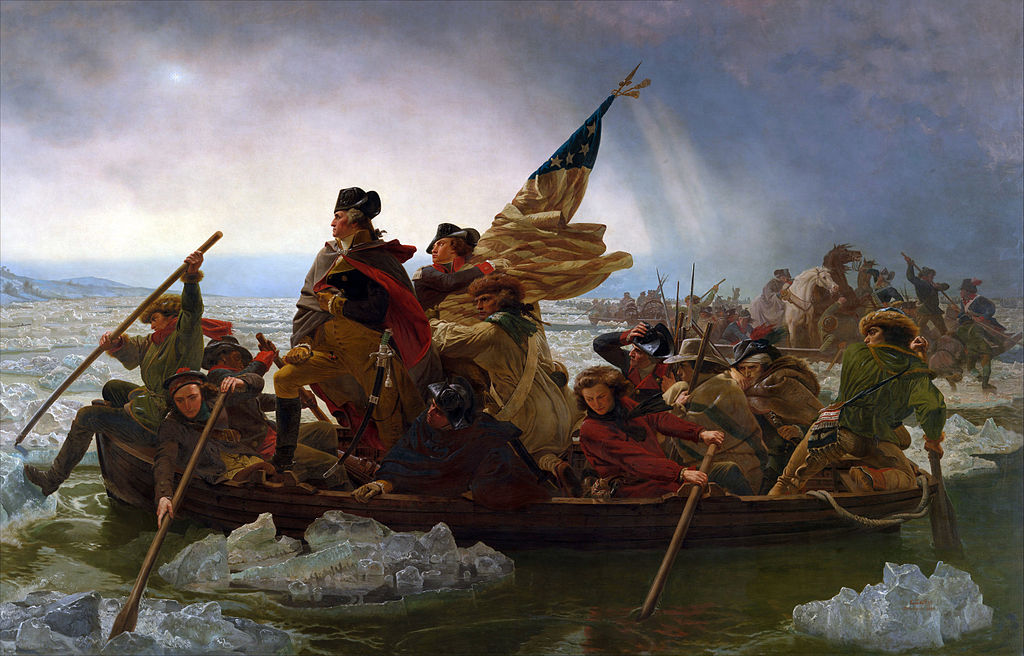Revolutionary War Battles after the Declaration of Independence
By the winter of 1776, much of the initial enthusiasm for American Independence had begun to wane. The American Army was made up of farmers and craftsmen who had left their homes to fight for independence. However, many had only signed up for a limited term of service, and they would be free to return home in January 1777. To keep his army together, George Washington needed a major victory to encourage his soldiers to reenlist. The soldiers were facing a difficult winter, with inadequate supplies and poor living conditions, and many of them were becoming disillusioned and wanted to leave the army.
The enlistment of many soldiers was set to expire at the end of the year, and they were planning to return home rather than reenlist. Additionally, the recent string of defeats and lack of success on the battlefield had resulted in a decline in morale among the soldiers.
This is a moment where the American Revolution could have failed.
Battle of Trenton
To address morale issues, General Washington and his staff came up with a plan to launch a surprise attack on the Hessian troops, who were considered some of the best soldiers in the British army, stationed in Trenton, New Jersey. The plan was to cross the Delaware River on Christmas night, 1776, and attack the Hessians early the next morning. Washington was able to convince his troops that this attack would be a good way to end the year on a positive note and to re-energize the troops for the year to come.

The attack was a success, and the Colonists were able to capture Trenton, which boosted the morale of the troops and encouraged many of them to reenlist. The victory at Trenton also had a positive impact on the war effort, as it led to an influx of soldiers and supplies to the Continental Army. Additionally, the Battle of Trenton had an impact on foreign policy as it helped to influence the decision of foreign powers, particularly France, to support the colonists in the war.
It was a turning point in the war: the Battle of Trenton marked a turning point in the war, as it marked the first time that the colonists were able to defeat a large British force. It also marked the first time that the colonists were able to take control of a major town, which was a major psychological victory for the colonists.
It was a demonstration of Washington’s leadership and tactical abilities: Washington’s leadership and tactical abilities were on full display in the Battle of Trenton. He was able to plan and execute a surprise attack, crossing the Delaware River, which was something that the British never imagined would happen in winter conditions.
Valley Forge
Valley Forge was the site of the winter encampment of the Continental Army during the American Revolutionary War. The conditions at Valley Forge were harsh, with the soldiers facing extreme cold, hunger, and disease. Many soldiers were poorly clad and lacked adequate shelter, and it’s estimated that around 2,500 soldiers died during the six-month encampment. Despite these challenges, the soldiers at Valley Forge were able to endure and maintain discipline and morale.

Valley Forge was also a time of great change and development for the Continental Army. Washington was able to reorganize and train the troops, and many soldiers received much-needed training and equipment. The army emerged from Valley Forge better trained, better equipped, and better prepared for battle than it had been before.
The Battle of Monmouth, fought in June 1778, was the first major engagement for the Continental Army after leaving Valley Forge, and it was a victory for the Colonists and marked the turning point of the war in the north. The Colonists were able to hold their ground against the British, and it marked the first time that the Colonists were able to stand up to the British army in a major engagement.
Valley Forge was a crucial period in the American Revolutionary War. Despite the harsh conditions and significant losses, the Continental Army was able to endure and emerge stronger. The training and discipline gained at Valley Forge helped the Colonists win the American Revolution.

